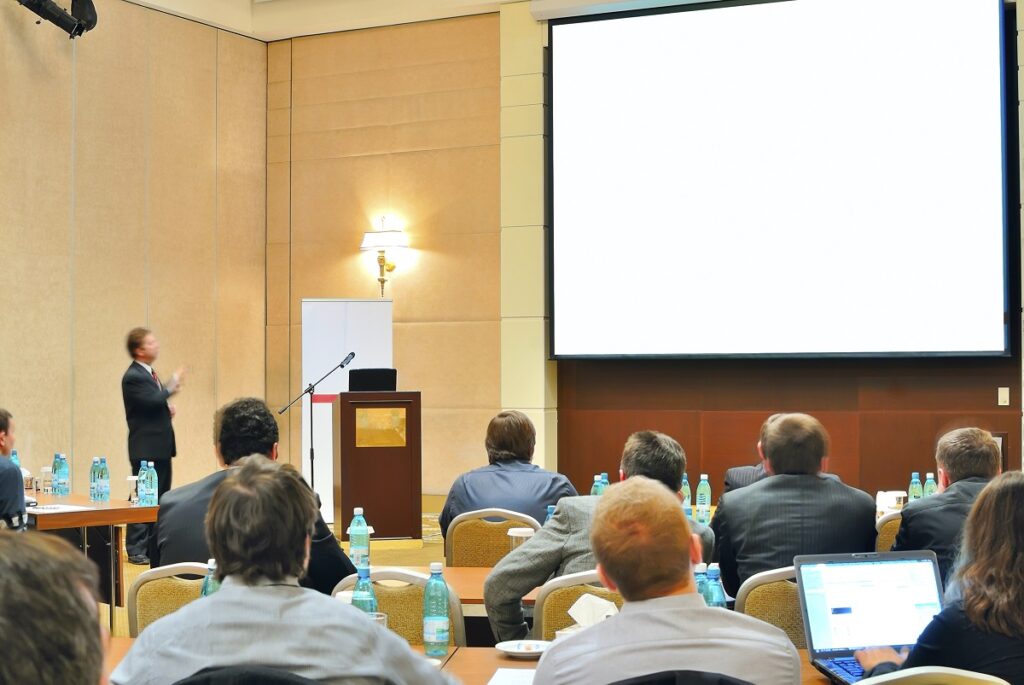There’s so much rich insight coming out of the academic sector that HR professionals need to know. At Academics’ Corner we feature the best HR researchers that tell you what they’ve found and what you need to do differently on the back of the research. Get connected to the academic sector through Academics’ Corner and make sure you never miss another piece of key research again. If you’re an academic with a relevant story, please get in touch on [email protected].
This article was written by Rachel Lewis and Emma Donaldson-Feilder.
In the UK, an average of £286 per employee per year is spent on training (CIPD, 2014). It is estimated that around a quarter of the total spend on training is spent on management training and development (O’Leonard, 2010). This equates to billions of pounds per year. This is within the context where in the UK we have a huge skills deficit, particularly within line management (ILO, 2012; Leitch, 2006) – and suggestions are that this deficit is increasing over time. So why is this huge investment in management development not reaping huge rewards in terms of management skills?
Despite almost a century of research into leadership the focus has been largely on theory development – trying to find out what the ‘right’ leader looks like – and comparatively little research attention has been paid to how theory will be developed in practice – in other words, in how we develop people to be ‘right’ leaders. The implicit and prevailing belief is that if we have established the ‘right’ theory, this will lead to better leaders and managers though a learning and development intervention based on that theory. This belief contradicts what we know from literature on learning and sustainability of learning. We can also see that practice often reflects this belief. Many management development programmes rely on choosing the right provider, the right model, and then running a ‘training event’. This approach fails to recognise that changing behaviour long term needs both support and an organisational context that encourages and embraces the change.
Until research recently completed by Rachel Lewis, Emma Donaldson-Feilder and colleagues at Affinity Health at Work (Rachel is also at Kingston Business School), there was no unifying model to help practitioners and organisations understand what they need to do to design effective management development, support application of management skills in the workplace and to set the context for sustainable behaviour change. This research, which won Emma and Rachel the award of British Psychological Society Practitioner of the Year 2014, has now been published as free to access tools. To read more about the research and how you can make management development work, download the free checklists and complete a free gap analysis report, click on the link below:
Top five wastes of money in management development programmes – or what not to do!
1. Don’t consider running a one off training course
Management development needs to be long term (3 months plus) using a range of different methodologies (such as coaching, feedback and workshops). Note, it is not just about more is better, but about considering how each element of the programme addresses an objective or a particular competency/type of behaviour. If you run a programme that uses both coaching and workshops – but both largely have the same content (i.e. only the delivery method is different), you will also be wasting your money
2. Don’t let your programme be a ‘drop in the ocean’
Any training course that is delivered in isolation is set up to fail. To make sure you get the most out of your development programme, link it to current organisational initiatives and strategies, to other development programmes, to organisational values, to performance management programmes and selection systems. Think about how you can create the strongest network of links to other initiatives for your programme. The more it is networked and embedded into the organisational life of the manager, the more likely it is to have an impact on that manager.
3. Think about the process NOT the content
Many organisations will spend the bulk of their time choosing the right provider and right course – and therefore focusing on the intervention part of the programme. Instead, think of the development programme as three equally important phases:
- The pre-stage. This is the stage where you embed the programme within the organisation, develop objectives, secure buy-in and engagement.
- The intervention stage. This is the stage where you run the development activities themselves.
- The post-stage. We develop and sustain skills by both practice and feedback. After the intervention, therefore, managers need to be given opportunities to use their skills, given feedback on their skill development and provided support to continue to build and develop.
4. Don’t attempt to run a programme without buy-in
Making sure all stakeholders in the process are on-board and supportive of the programme is vital to its ongoing success in sustaining change in managers. The key stakeholders you need buy-in from are:
- Senior managers. Consider not just how to get them bought in to the programme, but also make sure that they are leading by example and displaying the behaviours you want your leaders throughout the organisation to display.
- The managers themselves. Ensure that the managers feel confident in their skills, are engaged and see this programme as valuable opportunity for development. Avoid mandatory attendance – if you need to force managers to come, you are doing something wrong
- Direct reports. If direct reports are not prepared to be managed by their manager, the manager’s skills are irrelevant. Therefore involve direct reports in the development of the manager and the overall process to ensure reciprocity of skill development.
5. If the organisational doesn’t reflect the programme aims, don’t bother
Developing managers to be, for instance, participative people managers in an organisation that rewards and recognises outputs and tasks, or to be authentic and transparent in a highly guarded and hierarchical organisation, is unsustainable and therefore a waste of time. Managers will develop to be a reflection of the organisational culture. The best organisational culture in which management skills can thrive and develop is where there is open dialogue across all levels of the organisation and where respect and recognition for all employees is embedded and visible.












2 Responses
So true. Thanks for sharing
So true. Thanks for sharing this. We have done some research ourselves and are frankly shocked at how little interest there is in designing learning that is brain-savvy, that is designed to mirror how the people learn and change behaviour. It appears that many people in learning are unwilling to admit that what they have been doing for years doesn’t work and are more concerned about that than starting to get some results. In reality good learning design is often in place but the embedding and follow through is what is missing.
True
True